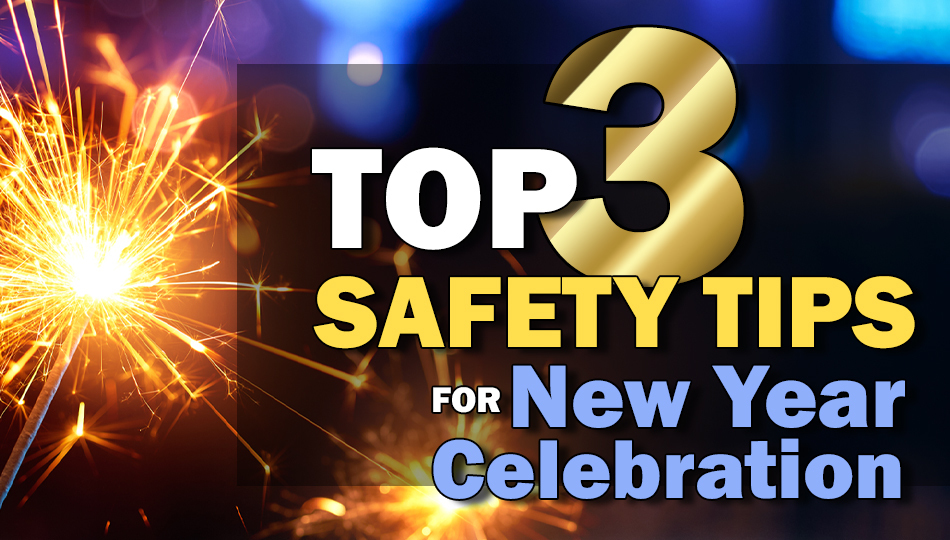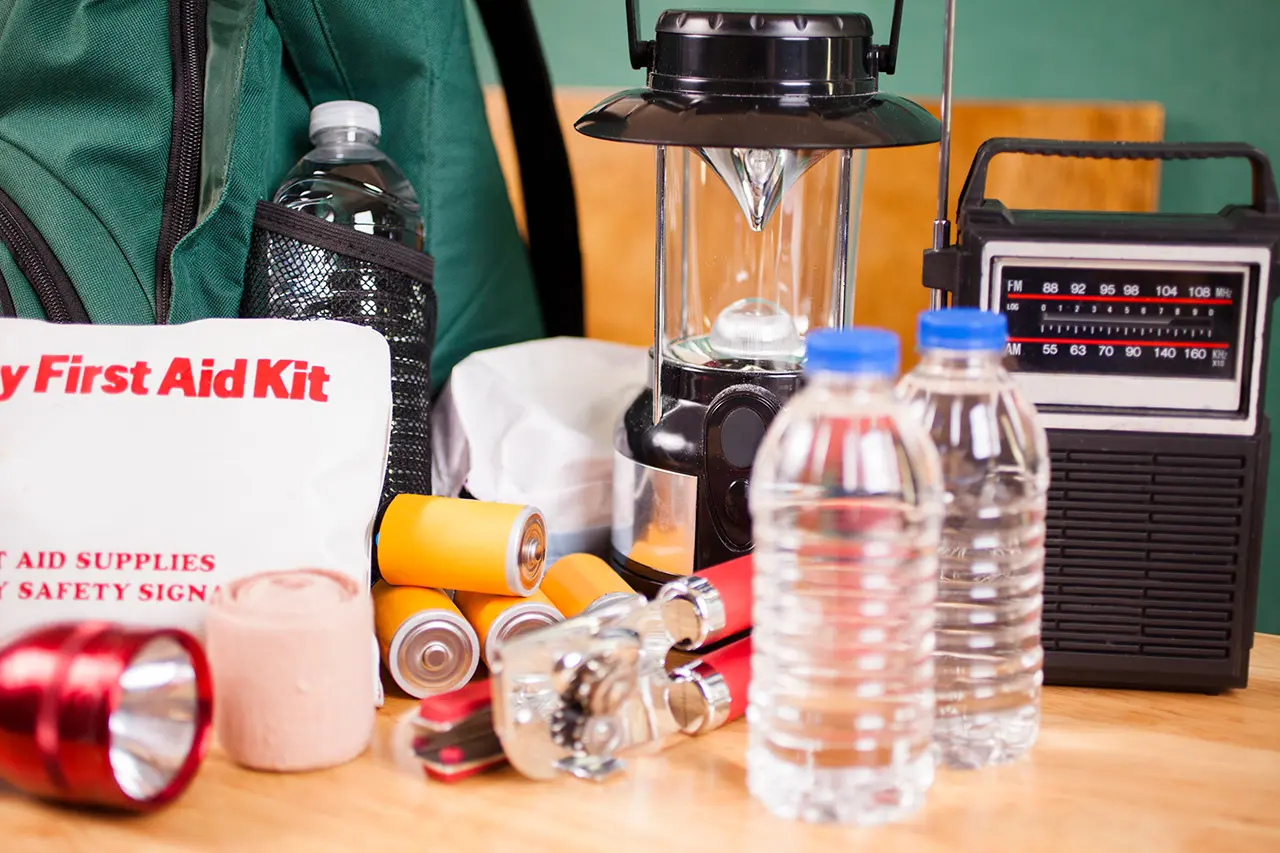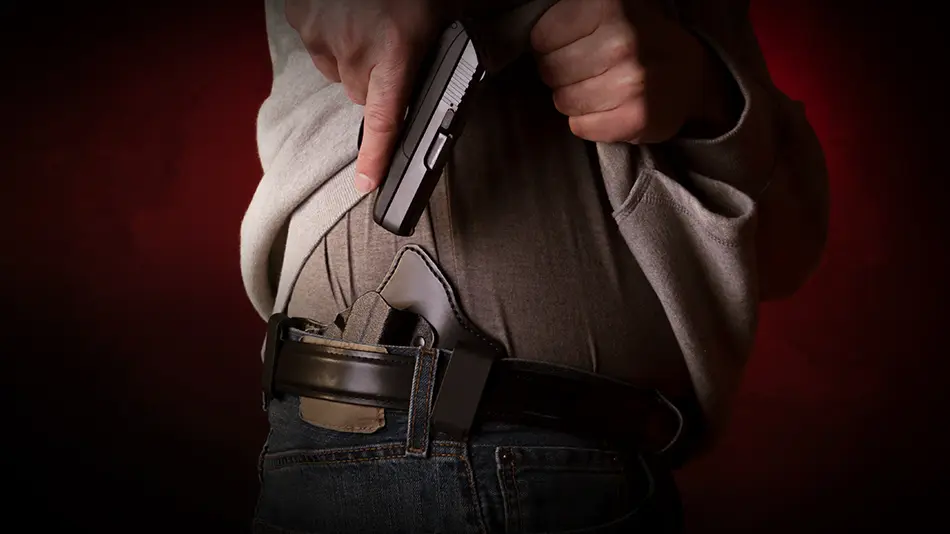
A New Year Celebration can represent many different things for many different people. For some, it is a time of careful reflection on the events of the past year and a hopeful optimism for the possibilities the coming year represents. For others, it’s an excuse to gather with friends, family, or strangers and enjoy a party. No matter your personal feelings or beliefs behind a New Year Celebration, it’s always a good idea to consider how to stay safe and what goes into protecting not only your physical health and safety, but also your emotional health and safety.
What Are Some of the Dangers of New Year’s Eve?
It is important to understand that the things people do to keep themselves safe the rest of the year also apply during the holidays. So, if you are concerned about protecting yourself from criminal acts the rest of the year, you should probably be concerned about that during a New Year Celebration. The great thing is, all the steps you’re already taking to keep yourself safe the rest of the year will probably serve you well during a holiday, too—as long as you stick to it. There are some holiday-specific concerns to be aware of, however.
According to the American Safety Council, New Year’s Eve and Day see the highest increase in drunk driving-related fatalities out of any other holiday. While it is easy to make the personal decision to drink responsibly, there needs to be a healthy concern about the potential for someone else’s irresponsible decision to drink and drive and how that might impact you.
There are some findings that indicate people feel more stress, anxiety, and depression during the period between Thanksgiving and New Year’s Day. While these issues are in no way a universal experience, it’s important to understand that they are a real concern for many people.
Finally, winter weather can have a massive impact on whether someone can stay safe on their drive home if they do choose to celebrate in public. Many places in the U.S. report either December or January as the snowiest month of the year. So, winter weather is another factor to consider when you start making New Year Celebration plans.
How Do You Stay Safe on New Year’s Eve?
- Whether you celebrate in public or host a party in your home, it’s very important to drink responsibly if alcoholic beverages are part of your celebration. If you’re celebrating in public, consider using public transportation or having a designated driver. It’s important to be self-aware and flexible. Acknowledge ahead of time that leaving your car somewhere might be the best option if you drink more than you initially intended to.
If you’re hosting a party in your home, pay attention to your guests and encourage them to make good decisions. Decide ahead of time if you’re even going to be serving alcohol. If you do serve alcohol and you see one of your friends has had a bit too much to drink, consider the suggestion of spending the night at your place as the best option for them to make it home safely the next day. Make decisions on how you might handle these situations ahead of time rather than trying to figure it out in the moment.
- If you find that your stress or anxiety is increasing during the holiday season, try to find healthy ways to help manage those feelings. There are tons of online resources that provide tools for navigating stressful periods, but it’s imperative to seek help from a qualified professional if those problems persist. Remember that increased levels of stress and anxiety are common this time of year, and try not to be too hard on yourself if you are feeling this way.
- Pay attention to the winter weather forecast! Consider changing your holiday plans if the forecast calls for snowy, icy, or extremely cold conditions. Very bad winter weather can impact everything from public transportation to emergency services. If you decide to leave your home to attend a New Year Celebration, make sure you consider what would happen if you found yourself stranded on the side of the road on the way to or from your destination, with no way for emergency services to reach you.
One of the most common mistakes people make in situations like these is dressing to arrive at a destination, not to survive the conditions if for some reason they are forced to spend any time outside. Consider keeping extra cold weather gear, food, and water— as well as a way to heat the water if it’s frozen—stored in your vehicle if your travel is interrupted and you find yourself stranded, waiting for help.
Is It Okay to Be Alone on New Year’s Eve?
Of course it’s okay to be alone on New Year’s Eve! Not everyone is the same, and not everyone enjoys doing the same thing. There is absolutely nothing wrong with choosing to stay home and celebrate in your own way (or choosing to not celebrate at all). If you make the decision to stay home for your own health and safety but still want to interact with friends, there are now more ways than ever to stay connected with people virtually—whether through online gaming, video chatting, or just picking up the telephone. If you do stay home, consider incorporating some form of holiday ritual for yourself, as there are many benefits to doing so.
At the end of the day, everyone must make their own decisions about how best to stay safe; don’t feel bad if your choices look different from someone else’s—do what’s best for you.
The information provided in this publication is intended to provide general information to individuals and is not legal advice. The information included in this publication may not be quoted or referred to in any other publication without the prior written consent of U.S. LawShield, to be given or withheld at our discretion. The information is not a substitute for, and does not replace the advice or representation of a licensed attorney. We strive to ensure the information included in this publication is accurate and current, however, no claim is made to the accuracy of the information and we are not responsible for any consequences that may result from the use of information in this publication. The use of this publication does not create an attorney-client relationship between U.S. LawShield, any independent program attorney, and any individual.





Leave A Comment